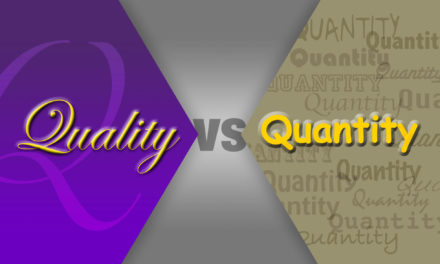In his book, Power/Knowledge, Michel Foucault discussed the ever-present nature of power and truth. In everything we do, there is some sort of power dynamic that is revealed in the course of our everyday lives. [1] One of the largest power dynamics that we deal with each day is also ever-present and all around us, namely the world of pop culture. Movies, television, the Internet, books and the like surround us each day, feeding our minds with little bits of information that we largely accept without a second thought. The power of the media and popular culture to persuade the masses is one of the greatest tools for Foucault’s argument that the “truth” in society is created from the effects of the society itself.
First we have to ask ourselves, what is “truth?” That is a fundamental question that leads society to its values and morals. For Foucault, truth is a function and overall result of power. It is a concept that is made from the power dynamics found in the discourses in human culture. Truth in a society is the end product of the higher power being manifest through the values of that society.
Pop culture holds a great deal of power over the thoughts of society. We look to pop culture for our news, our role models, our entertainment, and ultimately, our truth. In a lot of ways, popular culture is placed on a pedestal, trusted by the masses as being inherently good and therefore given the great power that it so easily exudes. However, with that willing transfer of power to media and popular culture, we come back to Foucault who stated that we live in a world of indoctrination and we each are a product of the social environment around us. The globalizing effects of media and popular culture in the 21st century is the fastest way to spread what Foucault saw as the indoctrination of society.
In the Symposium on American Values at Angelo State University, Angela Nelson stated, “Popular culture reflects the myths, beliefs, and values of people, but at the same time manipulates those same beliefs. Action adventure films like Rambo and Air Force One, for example, reflect the myths of America as a special nation, but they also manipulate audience beliefs such as stereotypes about different racial groups for example.” [2] In this respect, we have the age old question, “Which came first, the chicken or the egg?” Are our values in society today a result of the media and pop culture around us or is pop culture a result of our values? Like the chicken and the egg, it’s not an easy question to find an answer to. Popular culture reflects our beliefs and values yet at the same time, manipulates those values into new beliefs. We find ourselves caught in a loop where pop culture feeds us a continuous stream of new values and beliefs to ponder while feeding off the beliefs that we currently hold. That manipulation can lead us to think of our current beliefs to be in error, using irrational justification to apply slight modifications of the beliefs we have at the time.
The news media is one of the more interesting aspects of the pop culture scene. In the days of journalists like Edward R. Murrow, the search for and the exposition of the truth that was happening in society was the most important thing in a journalist’s eyes. We now face a mass media giant that frequently will think more of profits than finding and reporting the truth. In a 1958 speech given to the Radio-Television News Directors Association & Foundation, Edward R. Murrow said, “Just once in a while let us exalt the importance of ideas and information. Let us dream to the extent of saying that on a given Sunday night the time normally occupied by Ed Sullivan is given over to a clinical survey of the state of American education, and a week or two later the time normally used by Steve Allen is devoted to a thoroughgoing study of American policy in the Middle East. Would the corporate image of their respective sponsors be damaged? Would the stockholders rise up in their wrath and complain? Would anything happen other than that a few million people would have received a little illumination on subjects that may well determine the future of this country, and therefore the future of the corporations?” [3] Murrow saw a picture of the power of the media and popular culture in 1958 that is common place in the world today. Instead of showing society the whole picture of a situation, we’re presented with tainted views that give us what the keepers of the cameras want us to see and hear. Rarely are we given all sides of a story. The lack of full disclosure on the part of the media is another way that small manipulations of what we see and hear can form our opinions and beliefs on a particular subject. We find ourselves living in a world of indoctrination, subject to the whims and the manipulations of the corporations that finance the media around us.
The power dynamic between popular culture and individuals in society is overwhelming. One of the biggest examples of the power popular culture has over society occurred in the early 1960s. In 1964, The Beatles first appeared on U.S. television though the wildly popular variety program, The Ed Sullivan Show. In the 1960s, the Beatles led what the world called the “British Invasion.” With that invasion came some of the most powerful changes in the values of society. The immense popularity of The Beatles gave the members of the band an almost god-like status in the world, even to the point where, in an interview by British journalist Maureen Cleave, Beatles’ guitarist John Lennon made his most infamous statement. “Christianity will go,” he said. “It will vanish and shrink… We’re more popular than Jesus now – I don’t know which will go first, rock and roll or Christianity.” [4] While the context of Lennon’s statement was misinterpreted at the time, we can now see that there was some bit of truth in the statement. Their clothes, styles, and statements made them trend-setters, while their growing social awareness saw their influence extend into the social and cultural revolutions of the 1960s. The Beatles had become a large influence on the values of the younger generation, taking the lead in popularizing things like fashion, spirituality, recreational drug use, and, of course, the music industry. People’s values changed though the 1960s as a result of the powerful influence of one of the most popular musical groups of all time.
Since the time of The Beatles, the world has been running through a cycle of challenging and changing our values by the elements of pop culture. Angela Nelson noted that “popular culture relies on formula and repetition. People need to be reminded of what they believe and popular culture does this by repeating certain beliefs and values and organizing them into genres. Through formula and repetition, popular culture evolves into standards that tell people what is approved and accepted among its participants.” [5]
Pop culture creates a moralistic dilemma within itself. The dilemma is based on the concepts discussed by John Stewart Mill in his 1861 work, Utilitarianism. [6] In today’s world, popular culture is widely viewed in terms of entertainment. Today’s entertainment industry is built upon the concept of utility, where the greatest happiness for the greatest number of people is the visible, external aim of entertainment, with the internal driving force being the profits from selling that happiness. We are led into a scenario where the truth, and our values, are bought and sold as commodities. As humans, we seek for the happiness in society, which makes it easier for us to accept the discourse from pop culture, despite the fact that we can see that the goal of popular culture is to profit on what we think will make us happy.
So if our truth and our values are tied to popular culture, and pop culture is driven by the profits of the creators, where does that leave us as members of society? Unfortunately for a lot of us, we accept the reality that we’ve been given. We tend to rely on the media and pop culture as the end-all-be-all of our truth. We take what we see and hear and accept it or we dismiss it altogether and pretend that it doesn’t exist. In either scenario, pop culture is taking a major role in how we think and what we use as a basis for our values and truth. We find ourselves living in a situation of moral constructivism, where the origin of our moral obligations lies within human culture and is constructed by the culture we live in.
What then is the solution to break the bonds that popular culture has over society? We turn to the pleas of Plato’s Republic, where Plato talks about truth being an eternal concept, independent of the opinions and beliefs of society. [7] If we can find ways of taking the information that we are presented though the media and popular culture and then using that as a basis for introspection into our own beliefs, we begin on the path of liberation, leaving behind the chains of force-fed beliefs and venture out into the light of the Good, what Plato saw as truth, beauty and goodness. Once there, we can then find the connection between reason and the soul.
Murrow concluded his RTNDA address with an analogy. He said, “Stonewall Jackson, who knew something about the use of weapons, is reported to have said, ‘When war comes, you must draw the sword and throw away the scabbard.’ The trouble with television is that it is rusting in the scabbard during a battle for survival.” [8] This can also be applied to the battle for Plato’s concept for reason. When we rely upon the virtues and values of the popular culture around us to provide us with direction in our moral lives, it’s a war for the very survival of our morality. Now we just need to have the courage to draw the sword and throw away the scabbard.
References
[1] Foucault, Power/Knowledge: Selected Interviews and Other Writings, (New York: Pantheon, 1980),109-133.
[2] Nelson, “Symposium on American Values, Popular Culture: What Everyone Needs to Know,” Angelo State University, http://www.angelo.edu/events/university_symposium/1998/Nelson.htm.
[3] Murrow, The Radio-Television News Directors Association & Foundation, RTNDA Convention Keynote Speech, Chicago, IL, October 15, 1958.
[4] Maureen Cleave, “The John Lennon I knew,” The Telegraph, May 10, 2005.
[5] Nelson, “Symposium on American Values, Popular Culture: What Everyone Needs to Know,” Angelo State University, http://www.angelo.edu/events/university_symposium/1998/Nelson.htm.
[6] John Stewart Mill, Utilitarianism, (Indianapolis: Hacket, 2001), 7.
[7] Plato, Plato: Complete Works, ed. John M. Cooper, (Indianapolis: Hacket, 1997).
[8] Murrow, The Radio-Television News Directors Association & Foundation, RTNDA Convention Keynote Speech, Chicago, IL, October 15, 1958.






Dear Ionfuse,
Great article on the significant role of popular culture in our lives!
Please could someone tell me who wrote this article ‘Power/Pop: The Power of Popular Culture on Today’s Values’ ?? So that I could perhaps reference parts of it for an assignment?
Thank you
Julia
Thanks so much for the comment. I actually wrote the “Power/Pop” article as part of an Philosophy class on Ethics and Values back in 2007. I had some great references for the topic. Please feel free to reference any parts the article. I’d also recommend looking at the references at the end of the article as well. There was a lot of good information that was very insightful on the impact of popular culture on our everyday lives.
Best of luck with your assignment.
–Tim–